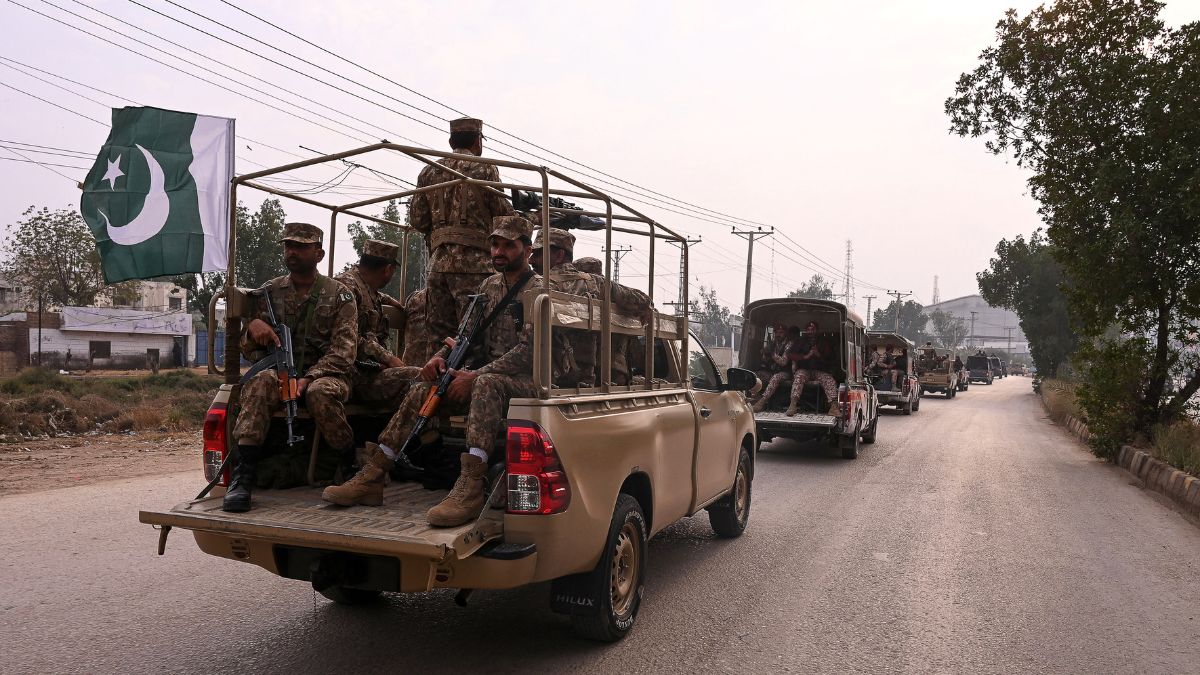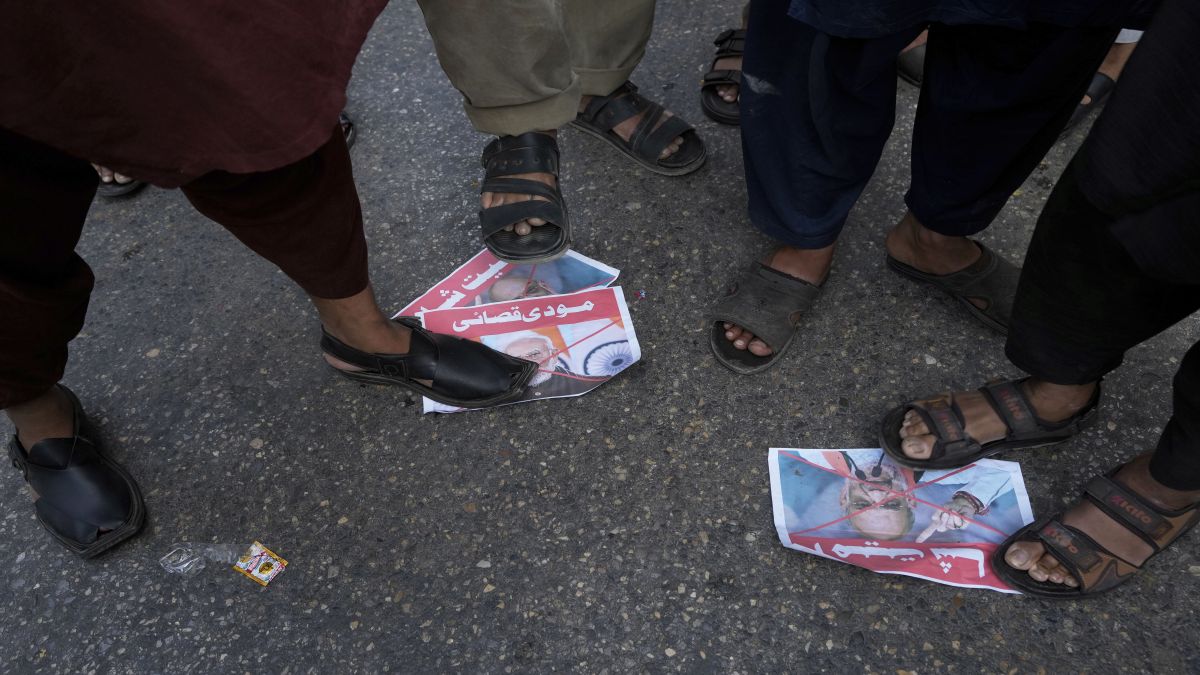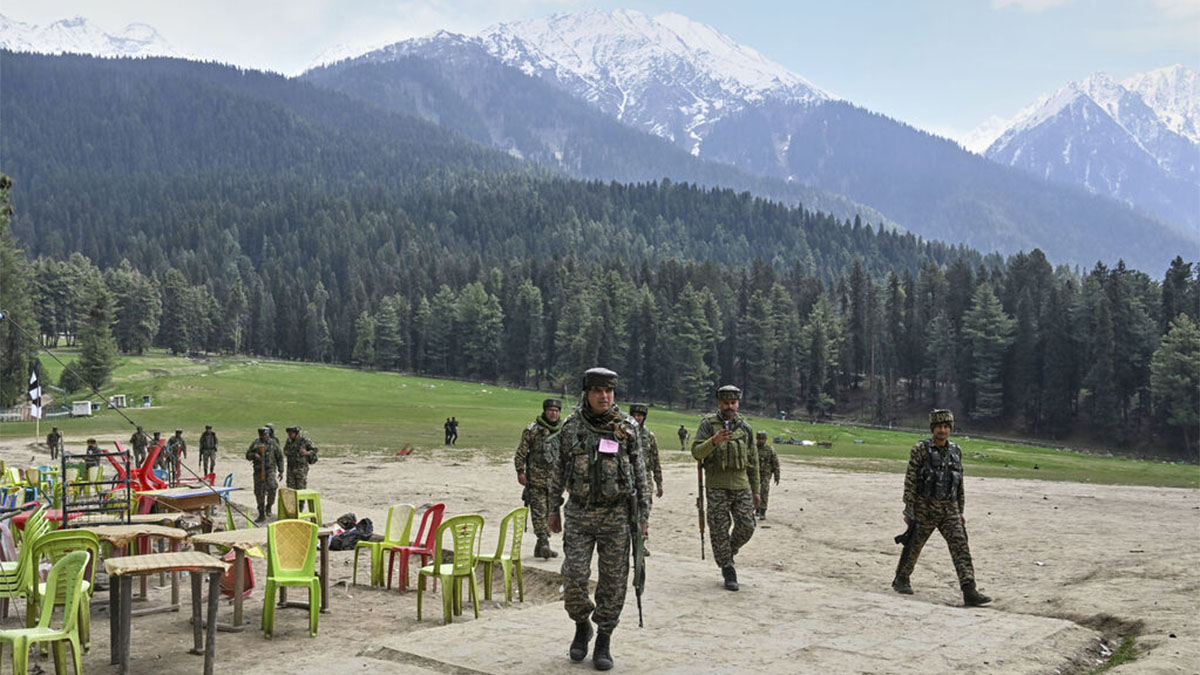In his first public appearance since the Pahalgam attack, Prime Minister Narendra Modi on Thursday vowed to punish terrorists wherever they may be on Earth.
In rare remarks in English, Modi’s message was as much for the world as it was for an Indian audience seething in anger at the mass-murder.
“From the soil of Bihar, I say this to the whole world: India will identify, track, and punish every terrorist, their handlers, and their backers. We will pursue them to the ends of the Earth. India’s spirit will never be broken by terrorism,” said Modi.
With the speech, Modi put Pakistan on notice.
With its actions so far, Pakistan has not shown any desire to de-escalate or cooperate — not that there are any such expectations. In New Delhi, there is no doubt that Pakistan has decided to end the period of relative calm in the bilateral relationship and return to the yesteryears of wars and conflict.
Pakistan hits many birds with one stone
First things first — the Pahalgam attack happened with Rawalpindi’s blessing, says a specialist on the subcontinent’s geopolitics.
This kind of attack can never happen without approval from the very top of the Pakistani military and intelligence establishment, says Prof Dhananjay Tripathi of the South Asia University (SAU), Delhi.
In the FIR for the attack, the Jammu and Kashmir Police said that terrorists carried out the attack “acting on the instructions of their handlers across the border”.
“The Pahalgam attack is not an act of some rogue elements or a self-financed group. The fact that such an attack has taken place tells you that they are ready for a broader conflict, possibly a war,” says Tripathi.
With 26 civilians dead, the Pahalgam attack is seen as the worst act of terror since the Mumbai terrorist attacks of 2008. But the question is why Pakistan is itching for war — and why now when the relationship has relatively been calm for years.
The answers are many — and both strategic and tactical.
Firstly, Pakistan has sought to shatter the impression of normalcy in Kashmir in recent years, says Aishwaria Sonavane, a Pakistan researcher at the Takshashila Institution.
Since the abrogation of Article 370, the Modi government had portrayed the surge in tourism in Kashmir as a sign of normalcy after decades of terrorism. Even though there were attacks on minority Kashmiri Pandits and migrant workers, there had not been an attack on tourists. The Pahalgam attack changed that. There has already been mass cancellation of tourists’ bookings.
Tripathi, the South Asia specialist at SAU, says that the attack on tourists by singling out Hindus is an attempt to portray to not just India but the world that not even Hindus are secure in India — the attack took place during US Vice President JD Vance’s visit to India.
Tripathi adds that the attribution of the attack to the so-called The Resistance Front (TRF) is an attempt to pass it off as indigenous resistance to India’s rule — the TRF is a cover that Pakistan-based Lashkar-e-Taiba (LeT) uses to portray its acts as those of a homegrown group instead of a foreign state-sponsored terrorist organisation.
Secondly, the Pakistani Army appears to be triggering an external confrontation to save itself from domestic troubles, according to Takshashila’s Sonavane.
“It looks like an attempt by the Pakistani Army to reassert control after a dip in public perception and recent internal security lapses involving the Baloch insurgency and Tehrik-e-Taliban Pakistan (TTP). A hyper-nationalist pivot also works as a distractionary narrative,” says Sonavane.
Thirdly, Sonavane says that Pakistan appears to be internationalising the Kashmir issue as the international attention on Kashmir had been waning after the abrogation of Article 370.
Fourthly, Pakistan is reorienting itself, particularly regarding India, in a fundamental way, says Tripathi.
“In recent years, India stopped portraying Pakistan as a central challenge. As India grew economically and Pakistan remained mired in sectarian violence, terrorism became the only way for Pakistan to be relevant. With the Pahalgam attack, Pakistan is reasserting itself to India and the world. It’s telling the world that it’s still relevant,” says Tripathi.
Munir sets tone for ties with India — and new direction for Pakistan
Days before the Pahalgam attack, Pakistani Army chief General Asim Munir set the tone for the new relationship with India in which he went back to the Partition and launched into a tirade against Hindus.
In doing so, Munir sought to give new direction to Pakistan by wading into the longstanding identity crisis the country suffers from. Since its inception, Pakistan has dealt with the question of whether it is an Islamic nation or a country for the subcontinent’s Muslims. Apparently, Munir believes in the former.
ALSO READ: Asim Munir’s rant signals Pakistan reverting to instability, intimidation and ideology
Pakistan is the only nation in the world founded on the basis of ‘kalma’, the declaration of faith that serves as the allegiance to God in Islam, said Munir.
“Our forefathers thought we are different from Hindus in every possible aspect of life. Our religions are different. Our customs are different. Our traditions are different. Our thoughts are different. Our ambitions are different. That was the foundation of the two-nation theory that was laid there. We are two nations — we are not one nation,” said Munir.
To settle the longstanding identity crisis, Munir appears to be putting the ‘Islamic’ Pakistan in a renewed struggle against ‘Hindu’ India.
As part of the unfinished nation-building agenda —Pakistan was after all created artificially from scratch— Munir appears to now revive India as the common foe.
Munir might be itching for war — but why?
Kashmir has been central to Pakistan’s approach to India and that has been driven not by geopolitical rationale or ambitions, but by ideology.
“I don’t think it’s in Pakistan’s interest to confront India, but Kashmir has always been more of an ideological project. The way I see it, the ‘jugular vein’ framing by General Munir echoes India’s ‘atoot ang (inalienable part)’ narrative. It seems the Army felt domestically cornered and reverted to this familiar script,” says Sonavne.
However, Sonavane cautions against reading too much into Munir’s speech or its ideological tone. She says that the speech was likely intended at a domestic audience to rally nationalist sentiment and reassert the military’s relevance.
Counter-terrorism expert Abhinav Pandya says that Pakistan has always looked at India with a religious lens and “Munir’s audacity to say that Pakistan is the only nation in the world founded on the basis of kalma shows that the idea of a religious war continues to drive the conflict with India”.
Pandya tells Firstpost, “Pakistan is in perpetual religious war with India. India may be a secular state, but Pakistan has always considered India to be a Hindu state and that’s why they carry out killings in the name of religion in Kashmir and elsewhere. The religious divide, a sense of racial superiority, and the unfulfilled agenda of the Partition continue to drive Pakistan. Pakistan fought four wars not over territory but because of a jihadist war on India.”
In a country founded in opposition to India, the hatred for India —which they see as a ‘Hindu India’— continues to drive the ruling elite of the military-intelligence establishment.
In her book ‘Fighting to the End: The Pakistan Army’s Way of War’, Prof Christine Fair noted that Pakistan military literature frames the threat from India in “ideological and civilisation terms rather than of security”.
Fair went on to say that clashing with India is so central to their doctrine that not clashing with India would amount to a defeat.
“For Pakistan’s men on horseback, not winning, even repeatedly, is not the same thing as losing. But simply giving up and accepting the status quo and India’s supremacy, is, by definition defeat…By seeing victory as the ability to continue fighting, Pakistan’s army is able to seize victory even from the jaws of what other observers would deem defeat,” noted Fair, a Professor of Security Studies Program at the Edmund A Walsh School of Foreign Service at Georgetown University, Washington DC.
Being in a state of confrontation is a must for the existence of the Pakistani military and even grim economic realities would not change that, noted Tilak Devasher in his book ‘Pakistan: Courting the Abyss’.
“Even if, and this is a big if, the army is constrained to seek accommodation with India given the economic conditions of Pakistan, its visceral hatred for India is unlikely to change. Neither will it discard its strategy of bleeding India via non-state actors. Unless the army examines it and Pakistan’s first principles, the mindset will not alter though tactically it may be forced to make adjustments,” noted Devasher, a former Special Secretary at India’s spy agency Research and Analysis Wing (RAW).
Such tactical adjustments might be like the ceasefire Pakistan reached with India in 2021. But the centrality of opposition to India among Pakistan’s ruling elite now appears to have overpowered the rationale of seeking peace.
Against all rationale, for reasons that only Munir and his brethren in the military- intelligence establishment know fully, Pakistan appears to be itching for a war with India. Even though India has exercised sobriety in the response to the attack so far, the ‘w’ word has already been thrown around by Pakistan.
In response to India holding the Indus Waters Treaty in abeyance, the Pakistani government said it amounted to an “act of war”. Whether that war takes place or good sense prevails in Rawalpindi remains to be seen.


)
)
)
)
)
)
)
)
)